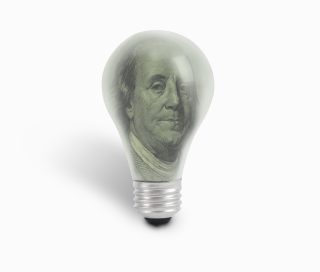A Rite of Fall
October 11, 2018
FOR IMMEDIATE RELEASE:
 More or less every year, as millions of Americans go back to school, some organization concerned about the state of education conducts a poll demonstrating the extraordinary ignorance of high school and college graduates about American history. This year it was the Woodrow Wilson Fellowship Foundation that solicited the cringe-worthy answers.
More or less every year, as millions of Americans go back to school, some organization concerned about the state of education conducts a poll demonstrating the extraordinary ignorance of high school and college graduates about American history. This year it was the Woodrow Wilson Fellowship Foundation that solicited the cringe-worthy answers.
Reaching for what ought to be the lowest common denominator, the foundation based its questions on the U.S. citizenship exam. Passing this test is a prerequisite to citizenship for those who weren’t lucky enough to be born here. As it turns out, naturalized citizens, most of whom received their formal education in another country or who studied (imagine that, they studied) for the exam, know more about our history than the native-born citizens who made up ninety-one percent of the respondents. Five percent of those polled are naturalized citizens. My bet is that they pulled up the average.
Over ninety percent of those polled graduated from high school. Sixty-three percent attended college. Eight percent reported having a post-graduate education.
So how did they do?
You know what’s coming, so let’s start with the bright spots, using that phrase guardedly. Sixty-three percent understood that the main concern of the United States during the Cold War was communism, but the other thirty-seven percent figured the Cold War had something to do with the Depression, slavery . . . or yes, climate change. Sixty-seven percent identified Thomas Jefferson as the author of the Declaration of Independence—the rest thought it was written by George Washington, James Madison or Abraham Lincoln, or they just had no idea. Fifty-one percent chose Patrick Henry as the man who said “Give me liberty or give me death” over Washington, Jefferson and Benjamin Franklin.
It’s all downhill from there. Twenty-five percent thought that World I, World War II or the Korean War occurred in the 1800s. Thirty-seven percent of people surveyed said that Benjamin Franklin invented the light bulb. Sixty-four percent said the U.S. Constitution was written in 1776. Fewer than one in eight knew that it was written in 1787. And appallingly, one in four had no idea what the American Revolution was about—and of those who thought they had an idea, twenty percent thought it had something to do with helping Indians or slaves secure their freedom.
The national report card? Well, Americans seem to be a pretty confident bunch. Sixty-three percent said the questions were too easy or about right. But that confidence . . . not exactly justified. Only three percent earned an A (I’m guessing they were all naturalized citizens). Sixty-four percent of those polled failed the exam, answering less than fifty-nine percent of the questions correctly.
Reviewing these polls is an annual ritual, consisting of head shaking and smug self-satisfaction, the writer winking and the reader chuckling at the ignorance of others. No one offers a way out, because few of us really believe any of this matters. Who cares that Edison invented the light bulb rather than Franklin? The thing turns on, right? What more do Americans need to know?
Nothing, if we’re prepared for the United States to be a country indifferent to national and personal independence, free government, the shared bonds of national identity or the principles of liberty, equality, natural and civil rights and responsible citizenship—in other words, indifferent to the gifts we inherited from the American revolutionaries. Nothing, if we’re satisfied with a nation so basely ignorant that it doesn’t honor its heroes, or content to live among people who don’t respect personal commitment, ingenuity, inventiveness or courage.
If we’re not content with these things, we have to act now to reverse decades of neglect. We need to ensure that all Americans, especially young Americans, understand and appreciate the American Revolution—that they are taught to cherish its ideals and to accept the challenge of American citizenship to help our nation realize those ideals.
This will take nothing less than a revolution in the way we teach history. More time, more resources and more energy must be committed to history, and particularly the history that unites and defines us as a people—our national history. That time, those resources and that energy need to be focused, not on a curriculum of great complexity. That curriculum needs to be focused on a set of simple truths about the constructive achievements of the American Revolution—achievements to which we are all heirs. The American Revolution Institute of the Society of the Cincinnati was founded by people committed to making this happen. We invite you to join us.